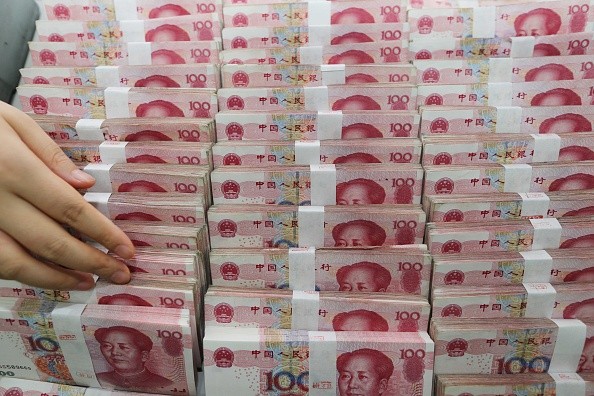In the last 10 years, China lost a total of $3.8 trillion to capital flight and to curb the outflows, a complex system of capital controls was developed by Chinese authorities.
But these efforts have failed to address the problem because of misconceptions that could have led to a better understanding of the causes of capital flight and the possible solutions to it, according to Frank Gunter, a professor of economics at Lehigh University and a senior fellow at the Foreign Policy Research Institute, in his article in Forbes.
Three myths
- Depreciation of the yuan - Some people believed that capital flight was driven by the expectation of the yuan depreciation and these individuals think they can profit by taking their yuan out of the country to be converted into dollars and other currencies.
Gunter said that this could not be a reason as the yuan had depreciated by about 25 percent to 6.14 yuan per dollar between 2005 and 2014 yet China capital flight increased from $125 billion in 2005 to $484 billion in 2014.
- Economic and political turmoil - The other reason for the capital flight are economic and political concerns. The slowdown of Chinese economy and the government's anti-corruption efforts are reasons that may have driven capital flight.
Gunter, however, said that China's economy actually grew tremendously from 2004-2010 and the political situation is stable but the capital flight still doubled every year.
- Capital controls are the solution - Some people also believed that if the amount of money taken out of the country becomes too large, the government can reduce it by imposing further restrictions.
But, according to Gunter, stricter capital controls in 1998 did not affect the volume of capital flight, only the methods used by people. Five years after 1998, capital flight using financial transactions dropped to $105 billion while those who use mis-invoicing have increased by $95 billion in the same period.
Possible reasons for acceleration of capital flight
Gunter presented some of the possible reasons why capital flight occurred. First, he said that China has transformed from an egalitarian state to an unfair state. China is next to the U.S. with 400 billionaires. These few individuals, who are less than 0.5 percent of the population, control about 25 percent to 33 percent of the country's GDP.
With the government crackdown on corruption, some of the wealthy Chinese prefer to move their families and money out of the country.
Another possible reason is migration, Gunter said. China's Central Bank said that in 2011, about 18,000 government officials left China, taking with them about $7 million each. Data also showed that about 60 percent of rich Chinese wanted to migrate.
Chinese students in the U.S. have increased about 500 percent to 304,000 in 2015, the U.S. State Department said. Many of these students wanted to stay in the U.S. after graduation.
Gunter said that the lack of well-paid jobs in China, as well as health concerns due to air pollution, drove some of the Chinese students to stay in the U.S. or other countries.
Gunter added that China may reduce capital flight if it would strengthen the rule of law to combat corruption, improve the quality of life of people and ensure employment opportunities for the educated Chinese.



























